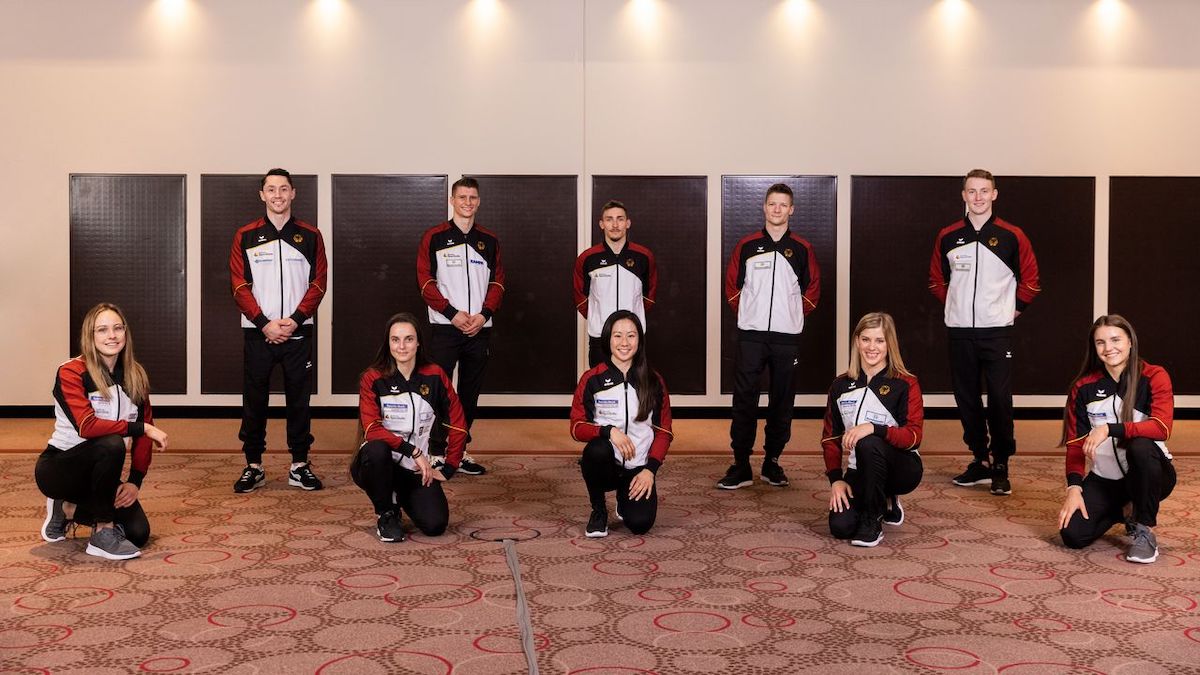
The German federation has named its women’s and men’s teams for the 2020 Olympic Games following last week’s national championships and then a second trial in Munich yesterday.
32-year-old Kim Bui will be part of her fourth Olympic team after previously competing in London and Rio in addition to serving as the alternate for Beijing. She’s joined by two-time Olympian Elisabeth Seitz and their 2016 teammate Pauline Schäfer, while Sarah Voss will make her Olympics debut at 22, and Emelie Petz will serve as the reserve athlete.
The team selected was the most straightforward one, with the four who will compete in Tokyo finishing in the top four both at nationals and at trials. Additionally, this particular group of top all-arounders is also the most capable of making individual finals, so in the end, it was a pretty easy decision.
At nationals, Seitz won the all-around title with a 53.500, while Schäfer and Voss rounded out the podium with a 53.400 and 53.000, respectively, and Bui ended up fourth with a 52.850. Then at yesterday’s trials, Voss came in with her fully-upgraded routines to top the podium with a 54.700, followed by Seitz with a 54.025, Schäfer with a 52.475, and then Bui again in fourth with a 52.075.
If this wasn’t obvious enough, Seitz capable of making the bars final If she can hit in qualifications, while Schäfer and Voss are consistently in the mix for beam. Bui is a standout on bars in Europe, though her routine is never quite enough for a major international bars final, but she’ll still bring in a big score there that I don’t think the team could afford to leave behind, especially as she can also add an NCAA-level Yurchenko full on vault, and her floor is typically one of the most consistent and top-scoring among the Germans.
The most promising new senior of the quad, Petz was fifth at both competitions, coming in a few tenths behind Bui each day. Ideally, she would accomplish what Bui can get done on vault and floor, with beam her standout event instead of bars. But while Bui is capable of a high 13 or low 14 on her best event, Petz’s beam barely clears a 13 on a good day, and she’s been largely inconsistent there (and everywhere) in the past, making her a bit too much of a risk right now.
Voss, Seitz, and Schäfer are indispensable, but I also think that while Bui hasn’t been totally on over her past two meets, she’s who I’d trust to hit and bring in the more productive scores in Tokyo. At this point, I would only use Petz on floor in a team final, and maybe vault, which doesn’t make sense when Bui would be a top-two choice on bars and floor in addition to going up on vault to give Seitz a break.
There wasn’t really anyone else seriously in the mix for Germany. 2016 Olympic bars medalist Sophie Scheder finished just eighth all-around at nationals. While she hit bars at the trial meet, she’s only at a 5.6 D score right now, with her total coming in at a 13.8, which is just too low to make her worth considering when she wouldn’t be able to contribute on the other three events if needed.
The men’s team includes 2016 Olympians Andreas Toba and Lukas Dauser, who had the top two all-around scores at trials and who are hoping to make the high bar and parallel bars finals, respectively. They’re joined by the third- and fourth-best competitors at trials, Nils Dunkel and Philipp Herder, while Nick Klessing, who was fifth, is the alternate.
The team is a bit weak compared to many of the men’s teams that have qualified to Tokyo, so I don’t think they’ll be a finals contender, but all four who made the team looked strong yesterday and like the women, they were the obvious choices, with the rest of the field not up to par in comparison.
Article by Lauren Hopkins



First of all, thank you so much for all your work!! I check your website for updates multiple times a week 😉
Super happy for Pauline Schäfer!!
LikeLike
What are the predicted WAG TF teams?
LikeLike